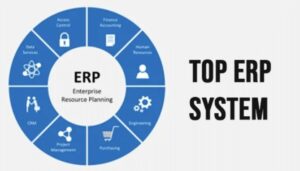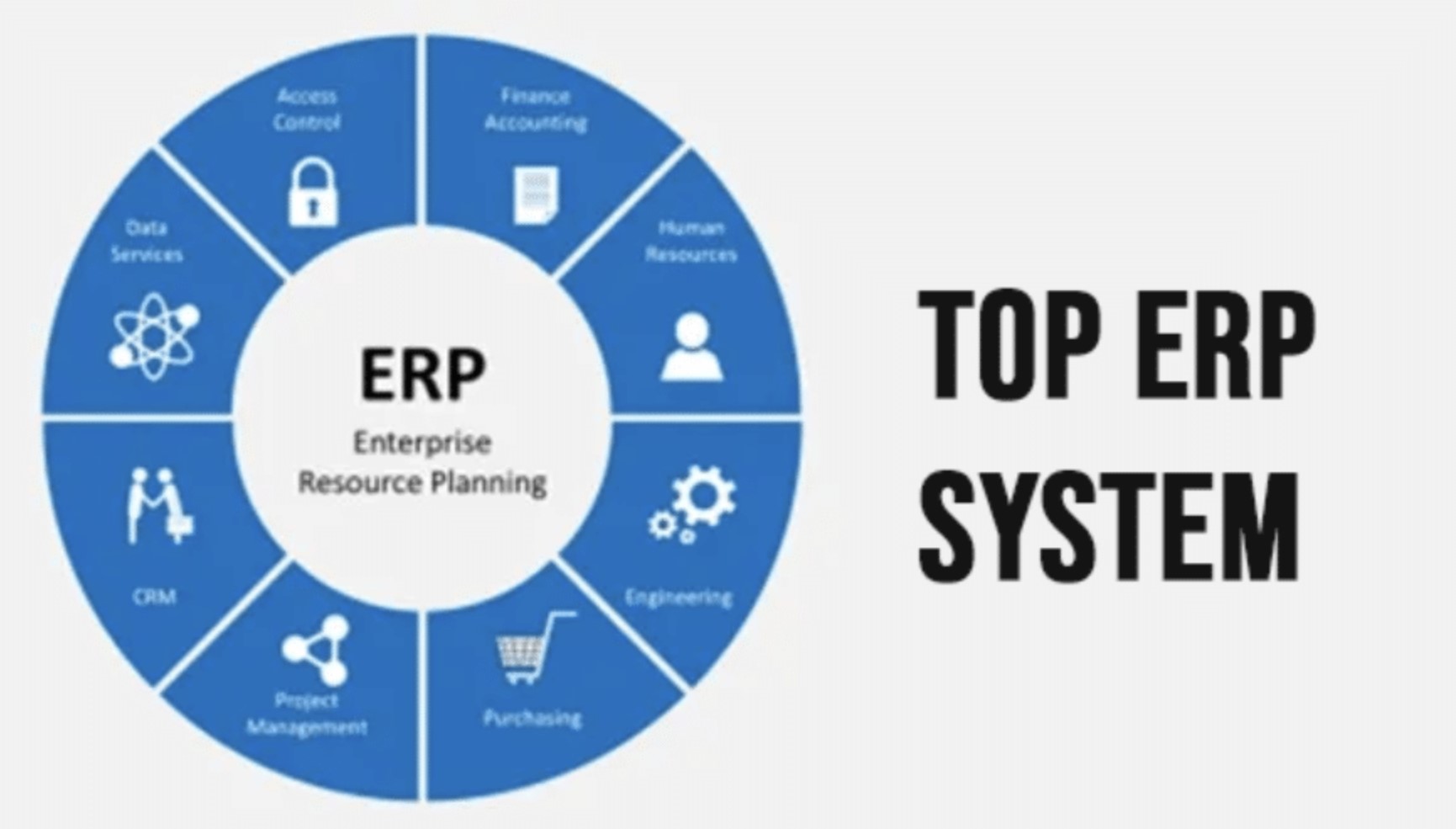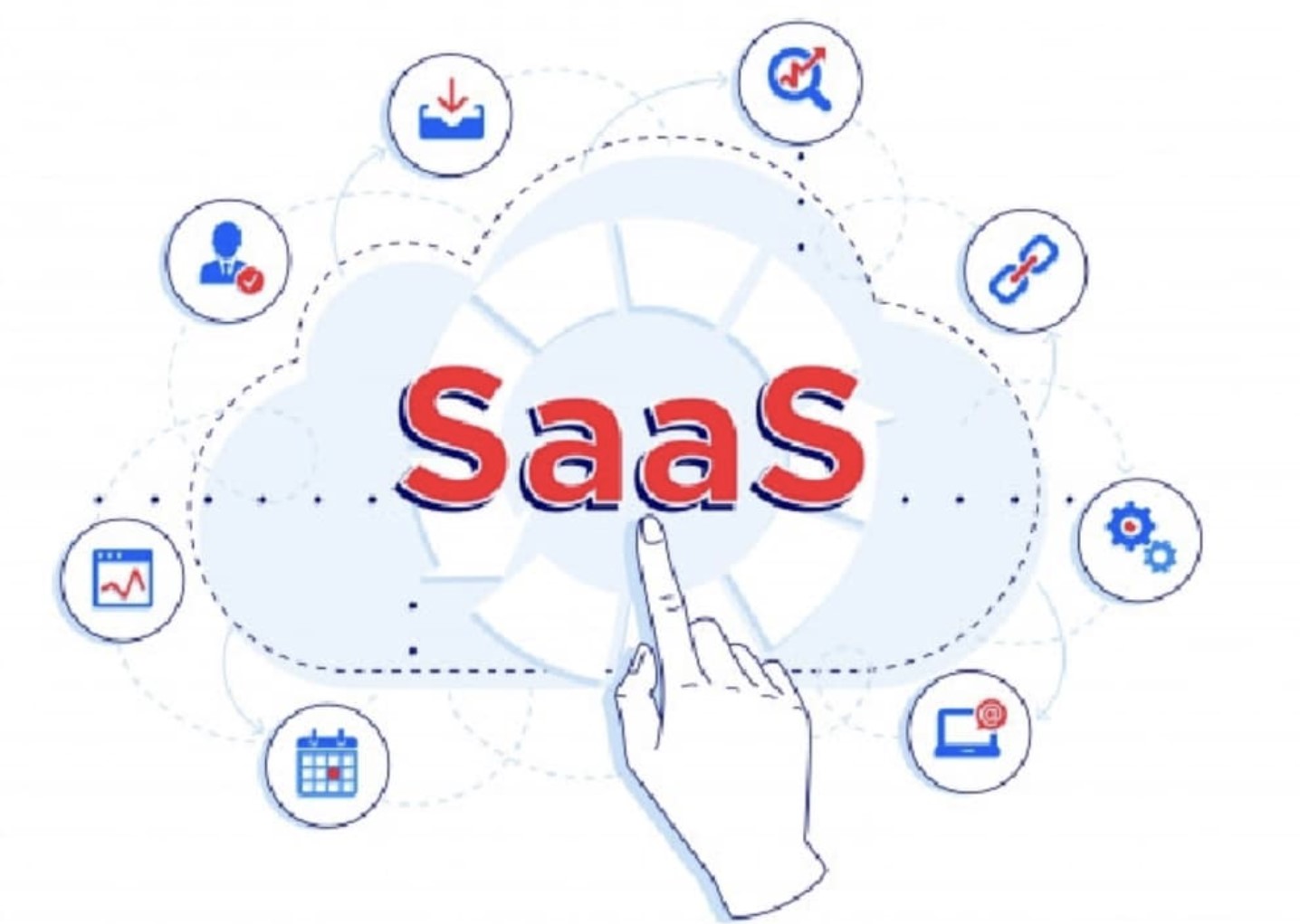Enterprise Resource Planning (ERP) systems are comprehensive software solutions that integrate and automate core business processes such as finance, HR, supply chain management, manufacturing, and more. These systems serve as centralized hubs, streamlining operations, enhancing collaboration, and providing real-time insights into business performance.

Importance of ERP Systems
ERP systems play a pivotal role in modern business operations by improving efficiency, reducing costs, and facilitating informed decision-making. By consolidating disparate processes and data into a unified platform, organizations can achieve greater agility and competitiveness in today’s dynamic market landscape Enterprise Resource Planning (ERP) systems are pivotal for modern businesses due to their ability to integrate and streamline core processes across various departments. The significance of ERP systems lies in their capacity to enhance operational efficiency, facilitate informed decision-making, and foster organizational growth. One of the primary advantages of ERP systems is their ability to centralize data and processes. By consolidating information from different departments such as finance, human resources, supply chain management, and customer relationship management into a single unified platform, ERP systems eliminate data silos and ensure data consistency across the organization. This centralized approach enables better collaboration, communication, and visibility across departments, leading to improved efficiency and productivity.
Criteria for Evaluating ERP Systems
Cost
The cost of implementing and maintaining an ERP system is a critical factor for businesses. This includes upfront licensing fees, implementation costs, ongoing support, and potential customization expenses Moreover, ERP systems provide real-time insights into business operations through advanced reporting and analytics functionalities. By analyzing key performance indicators (KPIs) and trends in real-time, organizations can make data-driven decisions promptly, identify opportunities for optimization, and mitigate risks effectively. This proactive approach to decision-making empowers businesses to stay agile and responsive in today’s fast-paced business environment.
Scalability
The scalability of an ERP system determines its ability to accommodate growth and adapt to changing business needs over time. A scalable solution ensures that organizations can expand operations seamlessly without encountering limitations or performance issues Another crucial aspect of ERP systems is their role in standardizing and automating business processes. ERP systems offer predefined workflows and best practices that enable organizations to streamline routine tasks, reduce manual errors, and improve process efficiency. By automating repetitive tasks such as invoice processing, inventory management, and order fulfillment, ERP systems free up valuable time and resources that can be allocated to more strategic initiatives.
Customization
The ability to customize an ERP system to align with specific business requirements is essential for maximizing its effectiveness. Flexible customization options enable organizations to tailor the software to their unique processes and workflows Furthermore, ERP systems support scalability and growth by providing a flexible and scalable platform that can adapt to evolving business needs. Whether expanding into new markets, adding new product lines, or accommodating an increasing number of users, ERP systems can scale seamlessly to support organizational growth without compromising performance or stability. This scalability ensures that businesses can remain competitive and agile in the face of changing market dynamics.
Integration Capabilities
Integration capabilities are crucial for connecting the ERP system with other applications and systems within the organization’s IT ecosystem. Seamless integration facilitates data exchange and workflow automation across various departments and functions Integration capabilities refer to the ability of an ERP (Enterprise Resource Planning) system to seamlessly connect with other software applications and systems within an organization’s IT infrastructure. These capabilities are crucial for enabling data exchange, workflow automation, and collaboration across different departments and functions.
Top ERP Systems in the Market
SAP S/4HANA
SAP S/4HANA is a leading ERP solution known for its robust features, real-time analytics, and extensive industry-specific functionalities. It offers modular applications for finance, supply chain, manufacturing, sales, and service, empowering organizations to drive digital transformation and innovation.
Oracle NetSuite
Oracle NetSuite is a cloud-based ERP system designed for small and midsize businesses. It provides a comprehensive suite of applications for ERP, CRM, e-commerce, and professional services automation, enabling organizations to streamline operations and accelerate growth.
Microsoft Dynamics 365
Microsoft Dynamics 365 offers a suite of ERP and CRM applications that seamlessly integrate with Microsoft’s productivity tools and cloud services. It provides flexibility, scalability, and deep integration capabilities, making it an ideal choice for organizations seeking a unified platform for business management.
Salesforce ERP
Salesforce ERP, powered by the Salesforce platform, combines CRM and ERP functionalities to enable end-to-end business automation and customer engagement. It offers a scalable and customizable solution for managing sales, service, finance, and operations in a single cloud-based platform.
Infor CloudSuite
Infor CloudSuite is a cloud-based ERP solution designed for industries such as manufacturing, distribution, healthcare, and retail. It offers industry-specific functionality, flexible deployment options, and built-in analytics, empowering organizations to optimize operations and drive growth.
Epicor ERP
Epicor ERP is a comprehensive ERP system tailored for industries such as manufacturing, distribution, retail, and services. It provides robust features for inventory management, supply chain optimization, financial management, and business intelligence, helping organizations streamline processes and improve productivity.
Acumatica Cloud ERP
Acumatica Cloud ERP is a flexible and scalable ERP solution built for small and midsize businesses. It offers a modern cloud platform with customizable dashboards, integrated workflows, and industry-specific editions, empowering organizations to adapt quickly to changing market conditions.
Comparison of Top ERP Systems
When comparing top ERP systems, organizations should consider various factors such as features and functionalities, pricing structures, and industry focus to determine the best fit for their business requirements.
Features and Functionalities
Each ERP system offers a unique set of features and functionalities tailored to specific industries and business needs. Organizations should evaluate the depth and breadth of functionality offered by each system to ensure alignment with their operational requirements.
Pricing Structures
Pricing structures for ERP systems can vary widely based on factors such as deployment model, user licensing, module selection, and additional services. Organizations should carefully review pricing plans and consider long-term costs to make informed decisions that align with their budget constraints.
Industry Focus
Some ERP systems are designed with specific industries in mind, offering specialized functionality and best practices tailored to unique business requirements. Organizations should choose an ERP system that aligns with their industry vertical to leverage industry-specific capabilities and maximize ROI.
Implementation Challenges and Considerations
While ERP systems offer significant benefits, they also present implementation challenges such as data migration, process reengineering, user adoption, and organizational change management. Organizations should develop a comprehensive implementation strategy and enlist the support of experienced consultants to mitigate risks and ensure successful deployment.
Conclusion
In conclusion, selecting the right ERP system is a critical decision for organizations seeking to improve operational efficiency, drive growth, and stay competitive in today’s digital economy. By evaluating key criteria such as cost, scalability, customization, and integration capabilities, businesses can identify the top ERP systems that best meet their needs and propel them toward success.



